 The COVID-19 pandemic has highlighted various health and human rights issues, and as globalization progresses, we need to be more prepared for future pandemics.
The COVID-19 pandemic has highlighted various health and human rights issues, and as globalization progresses, we need to be more prepared for future pandemics.
The 2024 "Teach! Waseda Discussants" theme is "What is Health?" We will consider health from the perspectives of several experts. Our guest this time is Tokuko Munesue Professor (Faculty of Social Sciences), who specializes in social security law and international human rights law. She is engaged in extensive research on "health and human rights," including the status and challenges of guaranteeing the "right to health" in Japan. We asked her about the current status and differences between Japan and the rest of the world in terms of the "right to health," and how it should be in the future.
What is the relationship between health and human rights?
The right to health is not explicitly stipulated in the Japanese Constitution, but in fact the "right to health" is stipulated in the constitutions of over 140 countries around the world. In addition, there are many issues that should be discussed with "health" and "human rights" at the core, such as the problems caused by the COVID-19 pandemic, the recent news about the unconstitutionality of the former Eugenic Protection Law, and even issues of war and conflict.
INDEX
▼Comparison of "health and human rights" in the world and Japan
▼ Awareness of "right to health" when thinking about daily health
▼A global perspective is essential to understanding health in Japan
Comparison of "Health and Human Rights" in the World and Japan
Please tell us about your research topic, Professor Munesue.
I am researching "health and human rights," "right to health," and "global health law." The theme of World Health Day on April 7, 2024, was "My Health, My Rights," and "health and human rights" is a topic that has been attracting more and more attention since the COVID-19 pandemic. The pandemics of the past few years have not only been health issues, but also various human rights issues, such as prejudice and discrimination against infected people, their families, and medical workers.
In addition, in conflicts occurring around the world, the lives, health, and livelihoods of many people are being destroyed, and medical staff and medical institutions that protect people's lives and health are being targeted and bombed. In light of these circumstances, there is a growing global momentum to once again consider "health and human rights."
On the other hand, problems related to pandemics and conflicts cannot be solved by one country. Infectious diseases spread globally as people move more actively. In addition, the aging of the population and the associated increase in chronic diseases are also global issues, and new legal frameworks are needed to address issues that affect health beyond borders, such as climate change, food shortages, and poverty. From this perspective, interest is growing in "global health law" as a norm for achieving the highest possible level of physical and mental health for people around the world, both in terms of hard and soft aspects.
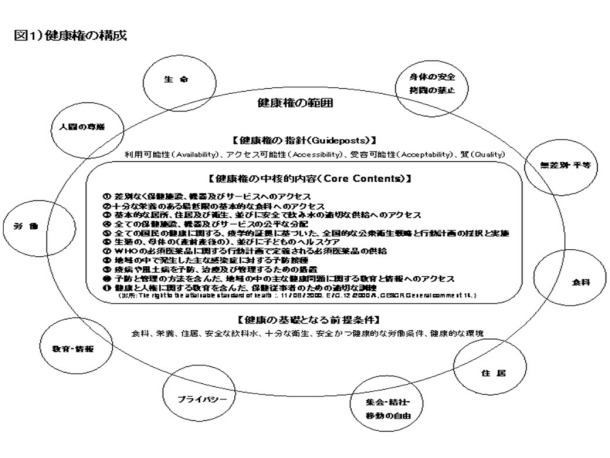
Document prepared by Professor Munesue based on "General Comment No. 14 on the right to health" (UN Doc. E/C.12/2000/4.) (Click to enlarge)
What are the differences between the world and Japan regarding the "right to health"?
Based on the idea that "the enjoyment of health is a fundamental human right of all people," the "right to health" was clearly stated for the first time in the world in the preamble to the Constitution of the World Health Organization (hereinafter referred to as WHO), which came into force in 1948. Since then, the "right to health" has been clearly stated as a human right in various international human rights treaties of the United Nations, and now the "right to health" is stipulated in the constitutions of over 140 countries around the world. However, the right to health is not explicitly stipulated in the Constitution of Japan.
Of course, Japan has ratified international human rights treaties, and although the right to health is not explicitly stated, it is considered to be one of the human rights that should be guaranteed based on the "right to pursue happiness (personal right)" in Article 13 of the Japanese Constitution and the "right to maintain the minimum standards of healthy and cultured living" in Article 25. However, compared to rights such as "freedom of expression" that are clearly stated in the Japanese Constitution, it can be said that awareness of the "right to health" is still low. I never learned about the "right to health" in classes or other classes when I was a student, and only learned about it when I read a paper in the library and wondered, "What is this right to health?"
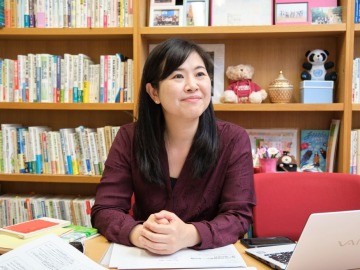
How has recognition of the "right to health" spread in other countries?
It all started when Jonathan Mann, an American doctor and professor at Harvard University, proposed "three approaches to the relationship between health and human rights." These three approaches are: "health is a human rights issue," "human rights are a health issue (because human rights violations have a detrimental effect on health)," and "there is a connection between health and human rights."
Jonathan Mann was originally an expert on HIV/AIDS. In the 1980s, AIDS was feared as a "rare disease" and patients faced severe discrimination. Even after treatment was developed, discrimination in society remained unchanged.
Based on these experiences and realities, Jonathan Mann realized that HIV/AIDS needed to be addressed not just as a medical issue, but as a human rights issue, and took action. He founded a global health and human rights organization and became the first director of the world's first Institute on Health and Human Rights, established at Harvard University. There, experts from various fields other than medicine and public health, such as law, economics, and political science, gather to conduct interdisciplinary research and education on "health and human rights." It is important to think and act together, beyond the framework of "doctors are responsible for health and life, and lawyers are responsible for human rights and discrimination." This movement spread to Western universities and the WHO.
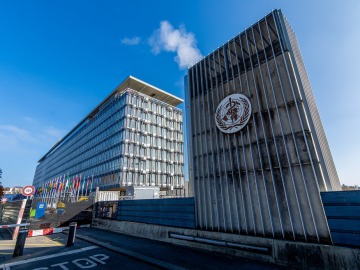
WHO headquarters in Geneva, Switzerland
Awareness of "right to health" when thinking about daily health
As a student, what are some things in your daily life that make you think about the "right to health"?
In the recent news, the Supreme Court ruled the forced sterilization procedures carried out under the old Eugenic Protection Law unconstitutional and ordered the government to pay compensation. Even if something was not considered a serious problem in the past, by raising people's awareness of human rights, we can change society to recognize the rights of those who have suffered in the past.
Such incidents are not limited to the former Eugenic Protection Law. From the perspective of protecting the right to health, it is also necessary to consider issues of discrimination and human rights violations against former Hansen's disease patients and their families, patients with chronic diseases such as cancer, people with disabilities, atomic bomb survivors, disaster victims including victims of nuclear accidents, and pollution victims. In addition, with the recent revision of the Criminal Code regarding sexual crimes, discussions on sexual violence are likely to be of interest to students. The WHO considers sexual violence to be a serious human rights violation, as well as a sexual and reproductive health issue and a public health issue. This is also an issue related to the "right to health."
For students who smoke cigarette, the increasingly strict "cigarette regulations" around the world are likely to be an interesting topic when thinking about the right to health. In fact, WHO has only created one treaty to date, the "Framework Convention on Cigarette Control." Before it was adopted, there was much discussion, including how to reconcile with people and regions that profit from the cigarette industry. Nevertheless, after many years of discussion, the treaty was adopted in 2003 and came into force in 2005.
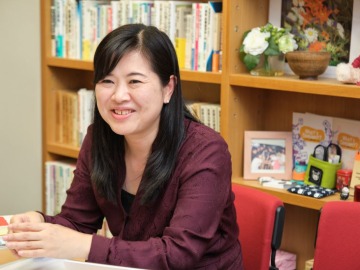
A global perspective is essential to understanding health in Japan
What are the new health issues being discussed around the world?
The WHO is currently discussing a "pandemic treaty," and the issue is how to prepare for and respond to future pandemics based on the lessons learned from the COVID-19 response. However, there has been little agreement on how to bridge the gap between developed and developing countries in terms of access to medicines, and discussions have been extended beyond the original schedule.
As with the Framework Convention on Cigarette Control, the reality is that it is extremely difficult to create a global legal framework for health-related issues. International political and economic factors are also heavily involved, and even if the need for a legal framework is recognized, the content of the framework is currently an issue. There is a growing need for discussion from the perspective of "global health law," as mentioned at the beginning of this article.
Lastly, please give a message to Waseda University students.
This time, we have discussed many topics from a global perspective, but I personally conduct research using data collected through fieldwork in Japan, and participate in surveys at health, medical and welfare facilities, disaster-stricken areas, etc. Even when considering these domestic issues, knowing global standards can help us see the challenges facing Japan more clearly.
One of the words I learned from my teacher when I was young is "Think Globally, Act Locally." This is a slogan proposed by the American environmental scientist Rene Dubos in the 1960s, but I think this phrase is also important when thinking about health and human rights. For example, even if we want to do something about war and conflict, it is beyond the capacity of students. Nevertheless, reconsidering the health and rights that are close to us can be the first step to preventing major conflicts. Why not try incorporating this perspective into your daily student life?
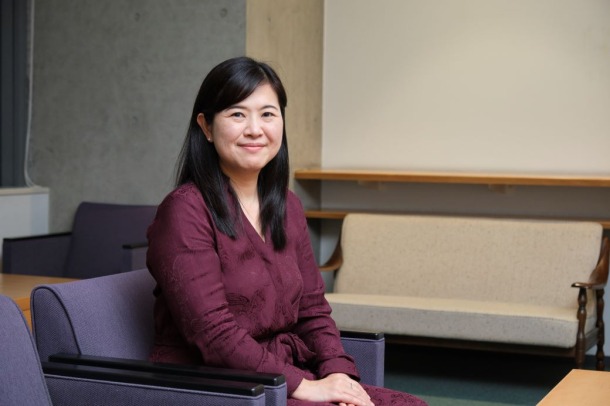
Tokuko Munesue
Faculty of Social Sciences Professor. Graduated from Chuo University School of Law, completed a master's course at the Graduate School of Social and Environmental Sciences, Kanazawa University, and completed a doctoral program there. Ph.D. in Law. After working as a postdoctoral fellow at the Institute of Human Sciences, Ritsumeikan University, a lecturer at the Faculty of Health and Welfare, Kanagawa Prefectural University of Health and Welfare, and a Associate Professor and Professor in the Department of Law, Kanazawa University, she assumed her current position in 2019. She specializes in social security law and international human rights law.
Interview and text: Ogumanaoto (2002 graduate of School of Letters, Arts and Sciences II)
Photo: Seiji Ishigaki
Image design: Ryo Uchida
▼Waseda University Global Health Institute Symposium "Sexual and Reproductive Health and Rights (SRHR) in Japan and the United States" will be held on December 18, 2024. For more information, please click here.
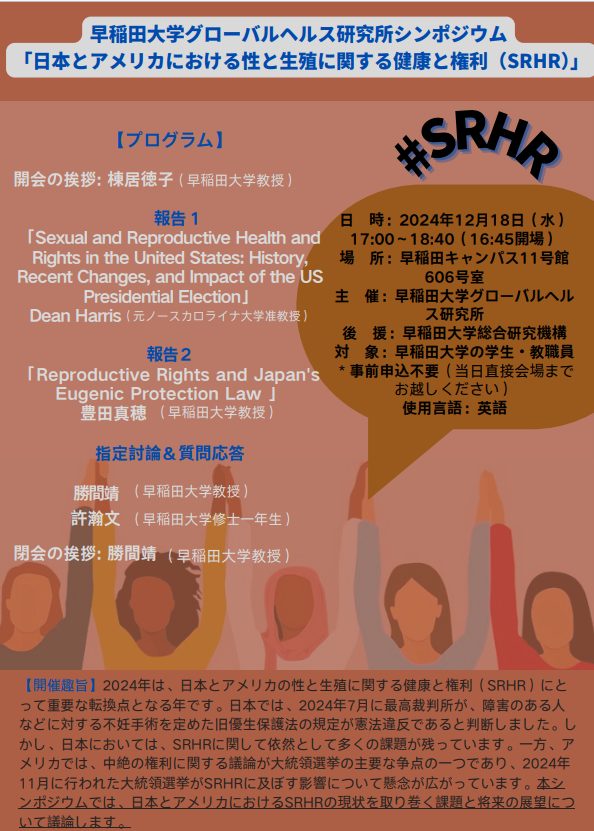

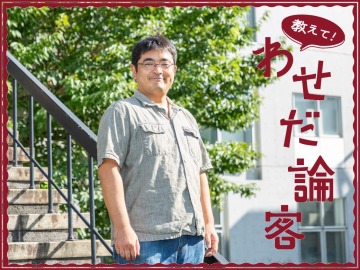

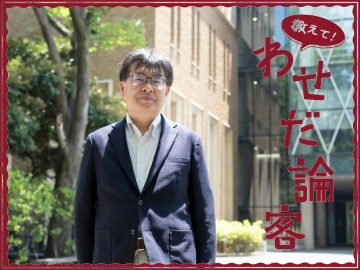
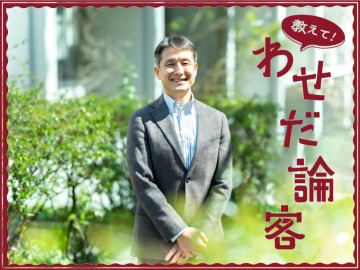

![[Save version] Map of the four main campuses](https://www.waseda.jp/inst/weekly/assets/uploads/2025/09/17cb2975123fc5103172ef60bd98608d-610x458.jpg)

